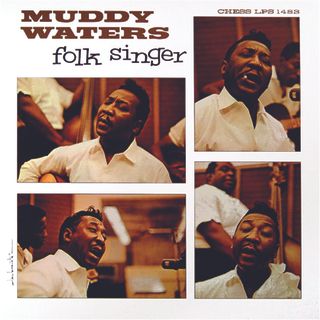Nathaniel Rateliff starts by apologising.
He’s “a little out of it”: the result of flying in from the States, screaming his lungs out at London’s Citadel Festival, then receiving a crack-of-dawn alarm call before the tinnitus faded. “It’s kind of a ruckus,” considers the frontman, of shows alongside his seven-piece band, The Night Sweats. “This trip to London is going really well. You never know what to expect when you start changing things up…”
Fans of Rateliff’s former incarnation as a folk-rocker will be pleasantly bewildered by The Night Sweats’ self-titled debut album: a rattle-and-holler soul masterpiece recorded after the Colorado songwriter finished the cycle for 2013’s Falling Faster Than You Can Run. “I’ve been wanting to write this type of music a long time,” he notes, “and I finally had some time off. Just for the hell of it, I tried to write a few songs, and ended up with lots of material.”
The record is released on Stax, appropriately given that highlights such as S.O.B are thrilling throwbacks with brass crammed in every space. “A lot of the artists on that label were part of the influence for this project,” says Rateliff. “Acts like Sam & Dave and Otis Redding, guys like Albert King and Booker T, who helped shaped rock’n’roll. I relate to the southern soul sound. It’s not as slick as Motown.”
Did that Stax spirit seep into your own sessions? “I hope it comes across that way. I was trying not to mess with the songs too much. Leave space, roll with it, let it be gritty. I remember one take where [producer] Richard Swift goes: ‘Are you okay? I’m pretty sure I can hear your throat tearing through the microphone.’ I was definitely giving it everything I had.”
So bone-shakingly joyous and dancefloor-ready are these melodies that you might overlook the soul-searching introspection of Rateliff’s lyrics. He says it’s the common factor carried over from his earlier work. “Yeah, I feel like I’ve been doing that for a long time. I’m still writing about the same things, it’s just a little more upbeat.
“Most of the songs are about relationships in my life. Some are about the struggles of being on the road, or things like drinking too much. S.O.B is kind of making light of alcoholism. Sometimes, you don’t really know what you’re singing about at the time. It sort of reveals itself to you later, when you’re looking back at situations in your life. I didn’t set out to throw anybody under the bus.”
Do you think sad songs can make people feel better sometimes?
“Oh, definitely,” beams Rateliff. “If not, I don’t think Leonard Cohen would have the following he has. I think that a certain melancholy feeling can be really comforting. But you know, I want people to dance and have a good time with this music. Even though the words might be a little bit of a drag sometimes…”
Nathaniel Rateliff & The Night Sweats is out now via Stax/Caroline.

INFLUENCES
“When I was young, I cut my teeth on Robert Johnson, John Lee Hooker, Chess. One of my favourite Muddy Waters records was Folk Singer, when he went acoustic. Buddy Guy is on there and Willie Dixon is playing upright bass, but his voice is so big, it overpowers all the instruments.”



